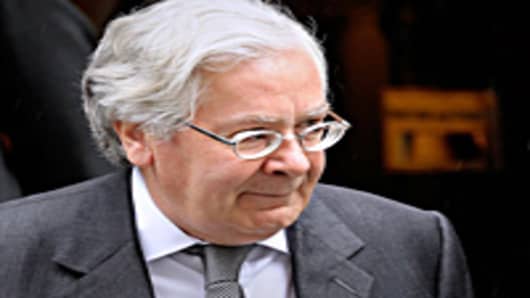Sir Mervyn King has given his clearest admission yet that he no longer believes price stability should be the Bank of Englands sole objective, arguing that central bankers should be flexible with inflation targets to head off future financial crises.
The BoE governor, who has made inflation targeting his watchword in his nine years in office, conceded that there were limits for monetary policy when dealing with financial crises, such as the one the UK is recovering from.
I think we cannot be entirely sanguine about the ability to keep bringing expenditure forward from the future into the present, he said in a speech on Tuesday at the London School of Economics.
Sir Mervyn said it would be sensible to recognise that sometimes it was right to aim off the inflation target for a while to moderate the risk of crises.
Monetary policy cannot just mop up after a crisis, he said, adding that the intellectual framework underpinning monetary policy needed to be reassessed.
Sir Mervyn said over the past three or four years the BoE had accepted an overshoot of the inflation target to prevent a much deeper recession.
There may be other reasons in the future for accepting an overshoot, or indeed an undershoot, more likely, of inflation...not for ever but just for a period for a few years in order to make it less likely that the risk of financial instability would build up, he said.
This was perfectly consistent, he said, with the spirit and the letter of inflation targeting. I do not in any way suggest the remit would change.
The test would be that the MPC would have to convince you and others that it was sensible to do that at this point, and of course what tends to happen is when you do something like that, no one believes its sensible, and 10 years later they say Its bloody obvious you should have done that, prompting laughter from the audience.
His remarks come as inflation in the UK has remained above its 2.0 medium-term target for more than two years, even as the Bank engineered the greatest monetary easing in its history, setting rates at historic lows and purchasing 375 billion pounds in gilts at the same time.
The aftermath of the financial crisis that began in 2008 in the banking system remains so deep, however, that despite extraordinary easing, Britains economy has essentially not grown since 2010.
Sir Mervyns remarks come as a growing number of economists question the wisdom of separating the maintenance of price stability as an objective from that of maintaining financial stability.
In his remarks, Sir Mervyn, who steps down next May, defended the banks record over the decade of his stewardship. With hindsight, he said, to prevent the events of the past five years the bank would have had to have macroprudential tools, such as the ability to regulate leverage in the banking system.
However, he conceded the bank could have tried to tighten fiscal policy as a second-best strategy. It would though have been a big gamble, he said.
Inflation targeting can and should remain a central objective of monetary policy, he said, adding it is far too soon to bury the concept. The key principles underlying flexible inflation targeting are credibility, predictability and transparency of decision making.
Nevertheless, he said, it was clear that there was a need for an approach that could head off a crisis before it began, and that sometimes, that approach might require inflation rates for some time that were higher or lower than the desired level.


